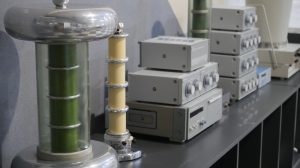Made in emerging Europe is our regular look at the technology, start-up, and investment scene across the region.
SeedBlink, an equity management and financing platform for European innovation, last week announced its expansion in DACH (Germany, Austria and Switzerland), to complement the company’s expansion plans. Launched in Romania in early 2020, the FinTech has quickly established itself in Central Eastern Europe and Benelux, the DACH region being the most recent focus for the tech-driven team.
The co-investment platform has developed collaborations with prominent venture capital firms like SpeedInvest, Occident Group, Xista Science Ventures or Elevator Ventures, as well as a strong partnership with Gateway Ventures, where the two platforms propose com-mon deals.
SeedBlink has so far contributed to DACH ecosystem funding with more than 1.3 million euros, having among its portfolio companies German BioTech startup MK2 Biotechnologies, MedTech BrainHero that addresses children with Autism Spectrum Disease and ADHD, Swisspod, the Swiss start-up developing an ultra-high-speed ground transportation system, Fretello, the Austrian Edtech for guitar learning, and Tripmakery, a travel tech startup for large group bookings.
SeedBlink recently launched a round for Nuumi – a German healthtech company looking to cure addictions and will launch in the coming period for SmartNanotubes – a German Deeptech start-up that has developed the world’s first mass-market gas detector chip.
“Our official DACH presence is designed to accelerate investment in the region and capitalise on the highly active innovation and entrepreneurial landscape across all tech sectors, by opening access to the VC asset class to new audiences,” says Eric Bartha, Head of Investment Management at SeedBlink.
SeedBlink’s mission is to grow equity ownership and open the door to wealth creation for more people. So far, the European platform has mobilised more 200 million euros into tech start-ups across the continent, through its network of individual investors and high net worth individuals.

Quantum start-up Haiqu nabs four million US dollars in pre-seed round
Haiqu, a US-Ukrainian start-up building software to enhance the performance of quantum processors, last week announced it has closed a four million US dollars financing round led by MaC Venture Capital, with participation from Toyota Ventures, SOMA capital, and a group of Ukrainian firms u.ventures, SID Venture Partners, and Roosh Ventures. The round also included private contributions from Paul Holland, Alexi Kirilenko, and Gordy Holterman.
“We are accelerating the timeline to practical quantum computing by developing novel software that can extract value out of clumsy near-term quantum hardware, enabling quantum applications that were previously impossible,” says Richard Givhan, co-founder and CEO at Haiqu. “We are proud to be backed by investors with remarkable deep-tech ecosystems and a track record of supporting the commercialisation of breakthrough tech.“
The investment will drive the company’s research and development efforts and the establishment of strategic partnerships to bring their product to market.
The start-up was formed and incubated in the fall of 2022 within the Creative Destruction Lab Quantum stream in Toronto by Richard Givhan (CEO), a Stanford alumnus and former EIR at Mitsubishi Electric, and Mykola Maksymenko (CTO), formerly a researcher at the Max Planck Society and the Weizmann Institute of Science and head of R&D at global consultancy SoftServe Inc.
Haiqu addresses the foundational bottlenecks precluding the adoption of quantum applications: a limited number of qubits and the high noise sensitivity of near-term quantum processors. The start-up develops platform-agnostic technology that extends quantum hardware capability by orders of magnitude and enables a broader set of practical use-cases in finance, chemistry, life sciences, mobility and other domains.
Unlike many news and information platforms, Emerging Europe is free to read, and always will be. There is no paywall here. We are independent, not affiliated with nor representing any political party or business organisation. We want the very best for emerging Europe, nothing more, nothing less. Your support will help us continue to spread the word about this amazing region.
You can contribute here. Thank you.







Add Comment